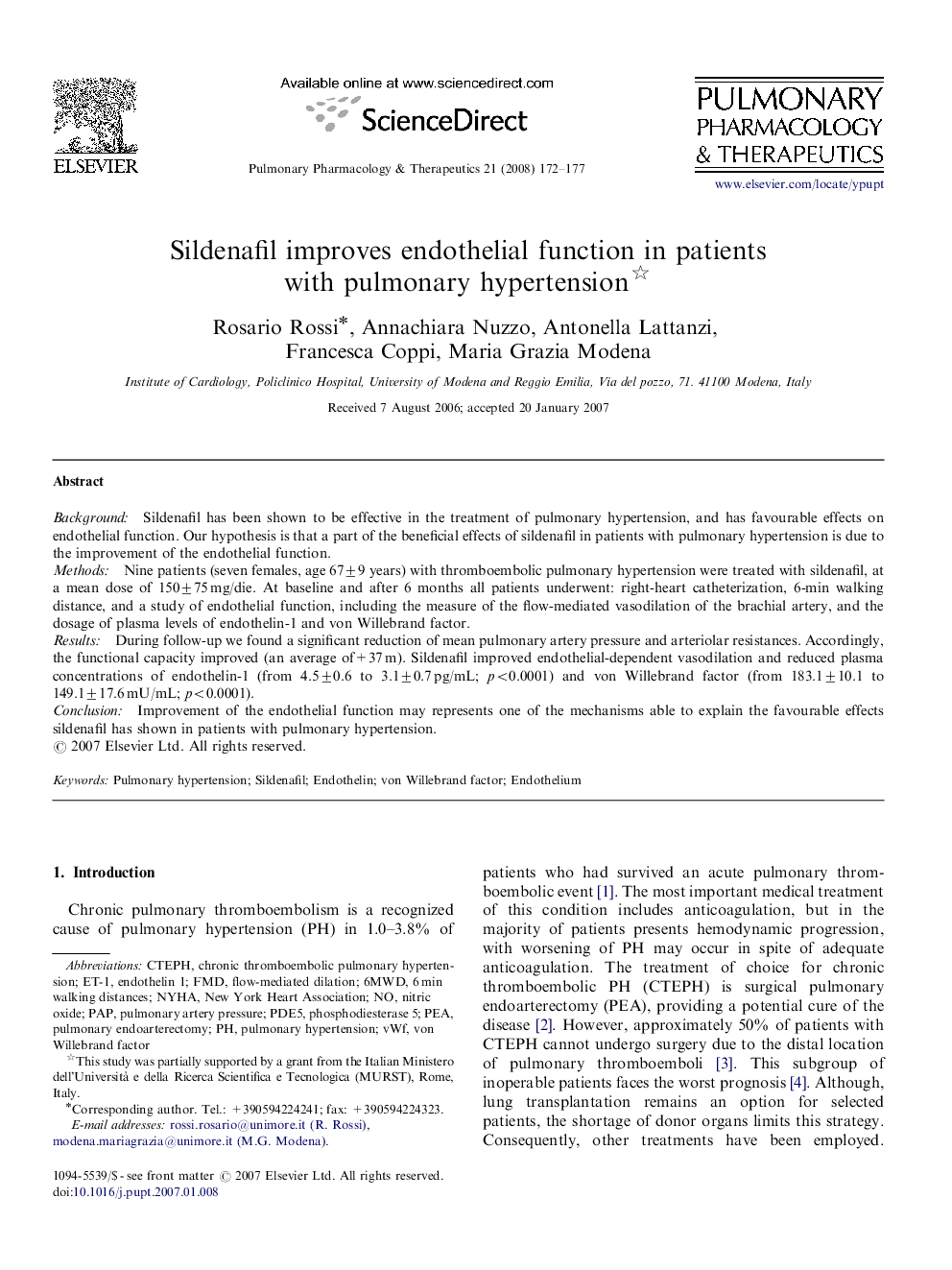| Article ID | Journal | Published Year | Pages | File Type |
|---|---|---|---|---|
| 2567641 | Pulmonary Pharmacology & Therapeutics | 2008 | 6 Pages |
BackgroundSildenafil has been shown to be effective in the treatment of pulmonary hypertension, and has favourable effects on endothelial function. Our hypothesis is that a part of the beneficial effects of sildenafil in patients with pulmonary hypertension is due to the improvement of the endothelial function.MethodsNine patients (seven females, age 67±9 years) with thromboembolic pulmonary hypertension were treated with sildenafil, at a mean dose of 150±75 mg/die. At baseline and after 6 months all patients underwent: right-heart catheterization, 6-min walking distance, and a study of endothelial function, including the measure of the flow-mediated vasodilation of the brachial artery, and the dosage of plasma levels of endothelin-1 and von Willebrand factor.ResultsDuring follow-up we found a significant reduction of mean pulmonary artery pressure and arteriolar resistances. Accordingly, the functional capacity improved (an average of+37 m). Sildenafil improved endothelial-dependent vasodilation and reduced plasma concentrations of endothelin-1 (from 4.5±0.6 to 3.1±0.7 pg/mL; p<0.0001) and von Willebrand factor (from 183.1±10.1 to 149.1±17.6 mU/mL; p<0.0001).ConclusionImprovement of the endothelial function may represents one of the mechanisms able to explain the favourable effects sildenafil has shown in patients with pulmonary hypertension.
